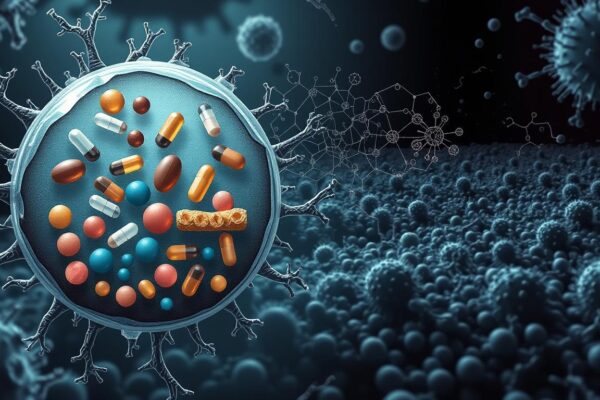Navigating Common Health Challenges for Women in Adulthood
As a young adult woman, you’re likely to face various health issues that can impact your well-being. Women’s health concerns, such as common health problems, can be challenging to navigate. However, being informed is the first step towards taking control of your health. This guide aims to provide you with valuable information on understanding and managing common health issues. It also focuses on establishing healthy habits and taking proactive steps towards long-term wellness.

By understanding the health issues women face, you can take proactive steps to prevent or manage them. This enables you to make informed decisions about your health and wellbeing. It empowers you to take control of your health journey.
Introduction to Women’s Health
As you navigate the complexities of women’s health in early adulthood, it’s crucial to be aware of the various health challenges you may face. From common health problems to women’s health concerns, being informed is key to taking control of your health.
Key Takeaways
- Understanding common health issues in women is crucial for taking control of your health
- Establishing healthy habits can help prevent or manage common health problems in women
- Being informed about women’s health concerns can enable you to make informed decisions about your health and wellbeing
- Taking proactive steps towards long-term wellness is essential for navigating health issue in women in adult
- Women’s health concerns, such as common health problems in women, can be challenging to navigate, but being informed is the first step towards taking control of your health
- By taking control of your health journey, you can prevent or manage common health problems in women and improve your overall wellbeing
Understanding Health Issues in Women in Adult: The Early Years
Your health journey starts in your early adult years, setting the stage for a healthy future. It’s vital to focus on women’s wellness during this period to prevent future health issues.
Key Health Milestones Before 25
Before turning 25, women hit several key health milestones. These include:
- Establishing regular menstrual cycles
- Reproductive health planning
- Developing healthy lifestyle habits
Building a Foundation for Lifelong Health
Creating a solid foundation in women’s healthcare in early adulthood is essential. It involves:
- Maintaining a balanced diet rich in essential nutrients
- Regular physical activity to promote fitness
- Managing stress through effective techniques
Common Health Concerns in Young Adulthood
Young women often face specific health issues like menstrual disorders, reproductive health concerns, and mental health challenges. Addressing these early ensures better long-term women’s wellness.
| Health Milestone | Description | Importance |
|---|---|---|
| Regular Menstrual Cycles | Establishing consistency in menstrual health. | Indicates overall reproductive health. |
| Reproductive Planning | Deciding on future family planning. | Ensures informed decisions about fertility. |
| Mental Health Maintenance | Managing stress and emotional well-being. | Prevents long-term mental health issues. |
The Importance of Regular Health Screenings
Starting your journey to adult women’s health begins with regular health screenings. These check-ups are crucial for spotting and stopping women’s health conditions before they worsen.
Women under 25 should focus on specific screenings to keep their health in top shape:
- Pap Smears: They help catch cervical changes and prevent cervical cancer.
- Breast Exams: They find lumps or abnormalities early on.
- STI Testing: They screen for sexually transmitted infections, ensuring timely treatment.
It’s important to schedule these screenings based on your healthcare provider’s guidance. These visits not only track your health but also boost women’s health awareness. This awareness empowers you to make better health choices. If fear, lack of time, or limited access to healthcare hold you back, look for local clinics or support groups. They can offer the resources you need to prioritize your health.
Reproductive Health Essentials
Your reproductive health is crucial for your overall well-being. Knowing the basics empowers you to make informed choices and tackle any women’s health concerns that arise.
Understanding Your Menstrual Cycle
Your menstrual cycle is a vital health indicator. Recognizing what’s normal helps you identify any health issue in women in adult early on. This allows for timely medical intervention.
Birth Control Options and Considerations
There’s a wide range of birth control methods, each with unique benefits and potential drawbacks. The right choice hinges on your lifestyle and health requirements.
Managing PCOS and Endometriosis
PCOS and endometriosis are prevalent female health issues. Grasping their symptoms and management options can greatly enhance your life quality.
Mental Health and Emotional Wellness
Your mental health is vital for your overall well-being. Adulthood brings challenges that can affect your emotional state.

To keep your emotional wellness in check, consider these strategies:
- Practice mindfulness and meditation.
- Establish a support network of friends and family.
- Engage in regular physical activity.
“Taking care of your mental health is just as important as taking care of your physical health.”
Recognizing warning signs early is crucial. If you experience persistent sadness, excessive worry, or changes in eating habits, seek professional help.
It’s essential to destigmatize mental health concerns. Creating a supportive environment allows you to address these issues openly.
| Resource | Contact Information | Website |
|---|---|---|
| National Alliance on Mental Illness | 1-800-950-NAMI | www.nami.org |
| Mental Health America | 1-800-969-6642 | www.mhanational.org |
| Substance Abuse and Mental Health Services Administration | 1-800-662-HELP | www.samhsa.gov |
Nutrition and Diet Requirements
Proper nutrition is key to maintaining your health and well-being. Understanding essential nutrients can help address many women’s health conditions effectively.
Essential Nutrients for Young Women
Your body requires a variety of nutrients to function optimally. Key nutrients include:
- Iron: Prevents anemia and supports energy levels.
- Calcium: Strengthens bones and teeth, reducing the risk of osteoporosis.
- Folic Acid: Essential for cell growth and metabolism.
Maintaining a Balanced Diet
It can be tough to balance your diet with a busy lifestyle. Focus on a mix of proteins, carbohydrates, and healthy fats. Planning meals and choosing whole foods over processed options can significantly impact your health.
Managing Food Relationships
Developing a healthy relationship with food is crucial. Avoid disordered eating by listening to your body’s hunger cues and practicing mindful eating. Building women’s health awareness helps you make informed choices for long-term health.
Exercise and Physical Fitness Guidelines
Staying active is crucial for addressing women’s health concerns and preventing common health issues. Regular exercise supports both physical and mental well-being. It helps manage stress and boosts your mood.
For women aged 25 and below, a balanced fitness routine should include:
- Cardiovascular Exercise: Activities like running, swimming, and cycling enhance heart health and improve endurance.
- Strength Training: Using weights or resistance bands builds muscle strength and supports bone density.
- Flexibility Work: Practices such as yoga and stretching increase flexibility and reduce the risk of injury.
Incorporating these exercises into your daily life can help tackle female health issues effectively. Consistency is key, so find activities you enjoy to stay motivated.
Common barriers to regular exercise include busy schedules and lack of motivation. To overcome these challenges, set realistic goals, join a fitness class, or partner with a friend for support.

| Type of Exercise | Benefits |
|---|---|
| Cardiovascular | Enhances heart health and endurance |
| Strength Training | Builds muscle strength and bone density |
| Flexibility Work | Improves flexibility and reduces injury risk |
Sexual Health and Safety
Your sexual health is a critical aspect of women’s wellness and overall well-being. It’s essential to understand how to protect yourself and communicate effectively. This empowers you to make informed decisions about your adult women’s health.
STI Prevention and Testing
Preventing sexually transmitted infections (STIs) begins with safe sex practices. Using condoms and dental dams consistently can greatly reduce transmission risk.
- Use condoms correctly every time you have sex.
- Consider regular STI screenings, especially if you have multiple partners.
- Limit the number of sexual partners to decrease exposure risk.
Regular testing is key for early detection and treatment. Common STIs include:
| STI Type | Common Symptoms | Treatment Options |
|---|---|---|
| Chlamydia | Unusual discharge, burning sensation during urination | Antibiotics |
| Gonorrhea | Similar to Chlamydia, sometimes asymptomatic | Antibiotics |
| Human Papillomavirus (HPV) | Warts, some types can lead to cervical cancer | Vaccination, monitoring, treatment of symptoms |
Understanding Consent and Boundaries
Consent is the clear and voluntary agreement to engage in sexual activity. It’s crucial to communicate your boundaries and respect those of others.
- Always seek enthusiastic consent before any sexual activity.
- Express your comfort levels and limits openly.
- Respect your partner’s boundaries and decisions.
Establishing and maintaining boundaries fosters healthy and respectful relationships. This contributes to your overall women’s healthcare and wellness.
Managing Stress in Early Adulthood
Early adulthood brings many challenges that can affect your health awareness. Dealing with new responsibilities and life changes often leads to stress. This is a significant health issue for women in this age group, impacting various health conditions.
Stress Management Techniques
Effective stress management is key to maintaining your well-being. Here are some strategies to consider:
- Mindfulness Meditation: Focus on the present to reduce anxiety.
- Regular Exercise: Enhance your mood and energy levels.
- Healthy Eating: Support your body in handling stress better.

Work-Life Balance Strategies
Striving for a balance between work and personal life can reduce stress. Here are some approaches to try:
- Set Boundaries: Clearly define work and personal time.
- Prioritize Tasks: Focus on what’s most important.
- Schedule Downtime: Allow time to relax and recharge.
Skin Health and Care
Maintaining healthy skin is a top priority among women’s health concerns, especially for those under 25. Acne remains one of the common health problems in women, often linked to hormonal changes. Additionally, sun damage can lead to long-term female health issues like premature aging.
Adopting a consistent skincare routine c an effectively manage and prevent these issues. Here are some essential practices:
an effectively manage and prevent these issues. Here are some essential practices:
- Cleanse your face twice daily to remove impurities.
- Use non-comedogenic moisturizers to keep skin hydrated.
- Apply sunscreen with at least SPF 30 every day.
- Incorporate products with salicylic acid to combat acne.
- Stay hydrated and maintain a balanced diet for overall skin health.
Choosing the right skincare products is crucial. Consider your skin type and specific concerns when selecting products. Opt for those labeled for oily, dry, or combination skin to ensure effectiveness.
| Skin Type | Recommended Products | Key Ingredients |
|---|---|---|
| Oily | Oil-free moisturizers, mattifying primers | Salicylic acid, niacinamide |
| Dry | Hydrating serums, rich creams | Hyaluronic acid, glycerin |
| Combination | Balanced moisturizers, gentle cleansers | Vitamin E, aloe vera |
Sleep Patterns and Rest Requirements
Getting enough sleep is crucial for your overall health and well-being. Quality sleep is vital for your women’s wellness and plays a key role in adult women’s health.
Importance of Quality Sleep
Adequate sleep aids your body’s repair and supports brain function. Poor sleep can harm your mood, concentration, and physical health. It impacts your women’s healthcare needs.
Creating Healthy Sleep Habits
Good sleep habits can boost your sleep quality. Here are some tips to help you:
- Maintain a consistent sleep schedule by going to bed and waking up at the same time each day.
- Create a relaxing bedtime routine, such as reading or taking a warm bath.
- Limit screen time before bed to reduce exposure to blue light.
- Ensure your sleeping environment is comfortable, dark, and quiet.
- Avoid caffeine and heavy meals in the evening.
By prioritizing your sleep, you enhance your women’s wellness and support your long-term adult women’s health.
Preventive Care Measures
Proactive health measures are essential for avoiding women’s health conditions early. Regular health check-ups can spot health issues in women in adult before they worsen. Being well-informed is key to women’s health awareness.
Here are crucial preventive care steps to consider:
- Vaccinations: Stay current with vaccines like the HPV vaccine to protect against cervical cancer.
- Dental Check-ups: Regular dental visits, at least twice a year, are vital for oral health and gum disease prevention.
- Eye Exams: Schedule eye exams every two years or as advised to catch vision problems early.
Living a healthy lifestyle is also vital in preventing common health issues:
- Maintain a Healthy Weight: A balanced diet and regular exercise help manage weight and lower diabetes and heart disease risks.
- Avoid Tobacco Use: Smoking increases cancer and respiratory disease risks.
By incorporating these preventive steps, you can significantly improve your long-term health and well-being.
| Preventive Measure | Recommended Frequency | Benefits |
|---|---|---|
| Vaccinations | As per healthcare provider | Prevents specific diseases like HPV-related cancers |
| Dental Check-ups | Every 6 months | Maintains oral health, prevents tooth decay and gum disease |
| Eye Exams | Every 2 years | Detects vision issues early, prevents eye strain and diseases |
| Healthy Weight Management | Ongoing | Reduces risk of chronic diseases, improves overall health |
| Avoiding Tobacco | Ongoing | Decreases risk of cancer, heart disease, and respiratory issues |
Building Healthy Relationships with Healthcare Providers
Creating a strong bond with your healthcare providers is crucial for tackling your women’s health concerns. A solid relationship ensures your specific needs are addressed. It also makes you feel at ease when discussing any health issues.
Finding the Right Doctors
- Primary Care Physicians: They manage general health and refer you to specialists when necessary.
- Gynecologists: They focus on female reproductive health, crucial for managing menstrual cycles and related concerns.
- Specialists: Depending on your health needs, specialists like those for PCOS or mental health support might be required.
When choosing a doctor, look at their credentials, communication style, and if you feel comfortable with them.
Advocating for Your Health Needs
- Communicate Clearly: Be open and honest about your symptoms and concerns.
- Prepare for Appointments: Write down questions and keep a record of your health history.
- Overcome Anxiety: Use deep breathing or bring a friend for support during visits.
Being proactive in your healthcare is key to addressing common health problems in women. It ensures your female health issues are managed effectively.
Common Medical Conditions to Watch For
As you navigate women’s healthcare, it’s crucial to be aware of medical conditions that can impact adult women’s health. Many young women enjoy robust health, yet specific issues are more common in this demographic.
Thyroid disorders can significantly affect your energy and metabolism. Look out for symptoms like unexplained weight changes, fatigue, and mood swings. Early detection through regular screenings is vital for managing these conditions effectively.
Autoimmune diseases, such as lupus and rheumatoid arthritis, are prevalent. These conditions occur when the body’s immune system mistakenly attacks healthy tissues. Signs include joint pain, swelling, and persistent fatigue. Understanding your family history can help assess your risk.
Certain cancers, including breast and cervical cancer, may develop during your early adulthood. Regular check-ups and screenings like mammograms and Pap smears are crucial for early detection and successful treatment.
| Condition | Signs & Symptoms | Risk Factors | Prevention |
|---|---|---|---|
| Thyroid Disorders | Weight changes, fatigue, mood swings | Family history, gender, age | Regular thyroid function tests, balanced diet |
| Autoimmune Diseases | Joint pain, swelling, fatigue | Genetics, environmental factors | Early diagnosis, medication adherence |
| Cervical Cancer | Abnormal bleeding, pelvic pain | HPV infection, smoking, multiple pregnancies | HPV vaccination, regular Pap smears |
| Breast Cancer | Lumps, changes in breast shape, skin changes | Family history, genetic mutations | Self-exams, mammograms, healthy lifestyle |
Conclusion: Taking Control of Your Health Journey
Your path to optimal health starts with understanding and awareness. Recognizing common women’s health conditions empowers you to make proactive choices. Regular health screenings and a balanced diet are key to managing your well-being.
Embracing women’s health awareness means prioritizing both your mental and physical health. Incorporate regular exercise and healthy sleep habits into your routine. Don’t hesitate to seek support from healthcare professionals who can guide you through any challenges.
Remember, early adulthood is a pivotal time to establish habits that will benefit you for years to come. Take charge of your health journey by staying informed, making healthy decisions, and advocating for your needs. With the right knowledge and resources, you can navigate the complexities of women’s health and build a foundation for a healthy, fulfilling life.


